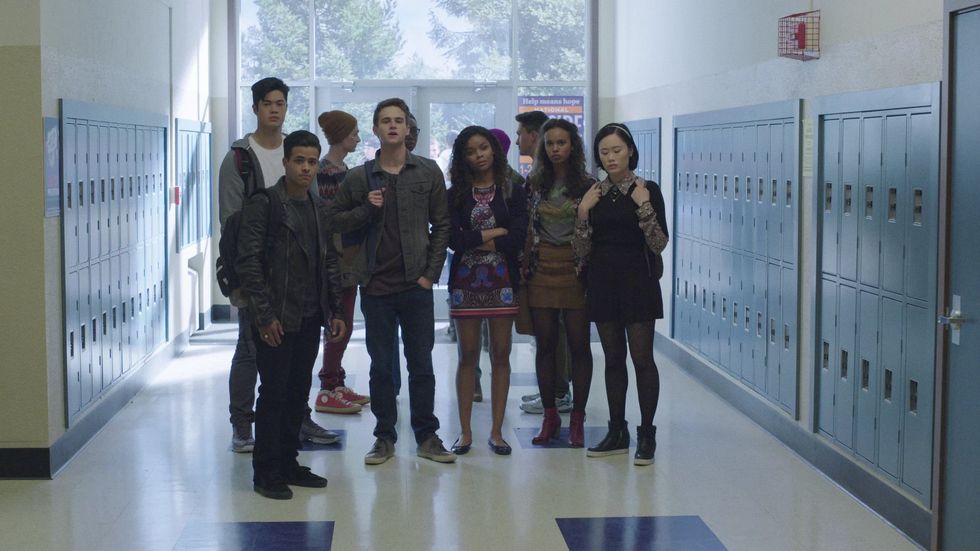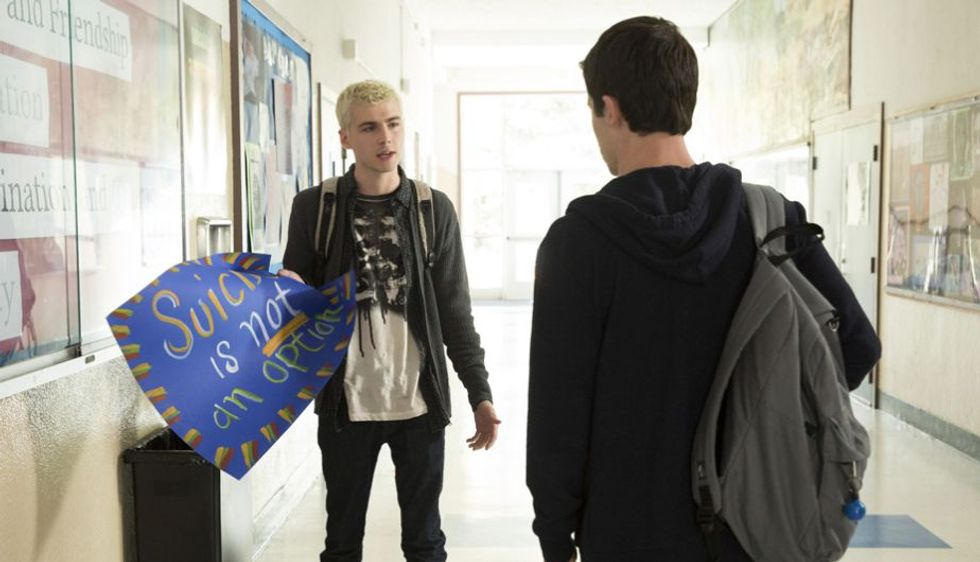Unless the rock you’ve been living under has zero wifi, chances are you’ve heard about the Netflix phenomenon that is “13 Reasons Why." Yet, as I’ve witnessed through a multitude of Facebook posts, the word hasn’t spread too far that this emotional series was a book long before it reached the Selena Gomez and Netflix adaptation.
Yes, Hannah Baker first appeared in page and ink of the "13 Reasons Why" book by Jay Asher ten years ago. I know this because I read it seven years ago and fell in love. Then allowed myself back into Hannah’s tragic tapes a second time in January through the equally emotional audiobook (listen to it, seriously).
But I’m not here to gush about how "the book was better." Because, truthfully, it wasn’t. Nor was it worse, it was just different. Yet, as a book reader who will almost exclusively declare that the book out does any type of film or TV adaptation, “13 Reasons Why” is a series I can get behind, and I think that goes for a large number of the book readers.
You see, in the book we experience two people, Clay and Hannah. We hear every bit of Hannah’s hardships through the tapes exclusively, and experience Clay’s reactions, thoughts and slow inducing breakdown right beside him. What we don’t get in the book is everyone else.
The book readers hear of Justin, Alex, Jessica and the rest of the perpetrators through Hannah. It’s "Hannah’s truth" as Tony puts it in the show, everything from her eyes, ears and lips. The Netflix series, however, gives us something Hannah can’t, those who victimized her as victims themselves.
Insignificant spoiler alert, but in the series Justin isn’t just some d-bag who spread rumors about Hannah and tainted her reputation, he’s a rumor-spreading-reputation-tainting d-bag who lives with his p.o.s. of a mother and her p.o.s. of a boyfriend. Alex’s dad is a police officer and Jessica’s parents are in the Air Force, creating strict lives at home, which we can infer adds to their need for rebellion. Each person has a backstory and current story that add to way more than just what Hannah has to say.
These people go from Hannah’s tapes in the book to reality in the Netflix series. Instead of Clay wondering how everyone else handled the tapes, Clay witnesses it first hand, right in front of his face. The Netflix series takes us deeper into the world of real people, beyond Hannah Baker's perception.
So why is this so important? Because Hannah was suicidal and so she saw the world through eyes tainted with hopelessness. The world was against her, no one was fighting for her and no one cared. At least that's how she felt, and I don't think even Clay could have stopped that.
So, Hannah’s truth might not have always been the complete truth. As in the series, Zach didn't throw away Hannah's hand-written confession like she claims he did. He kept it, but Hannah didn't see that. She saw his lack of help in the form of a crumpled-up note, tossed on the hallway floor. She saw hopelessness.
These back stories and flashbacks and reactions to Hannah's tapes do nothing to corrupt the story the readers fell in love with. It gives us more, adding to the world we experienced with Hannah. We see the people Hannah blamed for her hurt and anger as real people, and instead of hating them (okay, some we can still hate) we see them with their own fears and pain.
And this is why everyone is watching "13 Reasons Why." This is why the whole world is sobbing their way through "best ass" lists, Monet's coffee, and graphic rape scenes. Because the people Hannah blamed for her downward spiral are now all of us. And that correlation is something the book just couldn't give us.
Justin's lie seems insignificant when it's alone. But pair it with Alex's list, Courtney's betrayal, or so much Bryce, it stacks and stacks until Hannah breaks under the weight of it all. It leaves the viewer thinking how many people have I taunted, how many rumors have I spread? How many times did I think my actions were so insignificant that they could never effect someone like they did Hannah Baker?
"13 Reasons Why" gives us more than entertainment. It gives us reality through contemporary fiction. Everything Hannah goes through is entirely plausible, which doesn't resonate while reading the book as much as it does when watching it unfold in front of you onscreen. That's why I, as a reader, found this adaptation not only incredibly well done, but completely necessary. Hannah Baker might be fiction, but her story is far from it. And although I will always encourage reading the book, this Netflix series was needed to spread a truth beyond the Young Adult audience, and into the world where the Hannah Baker's aren't noticed until it's too late.


















